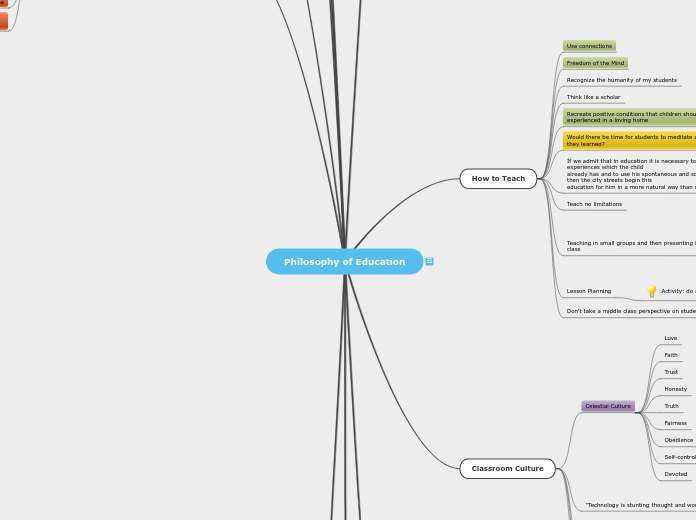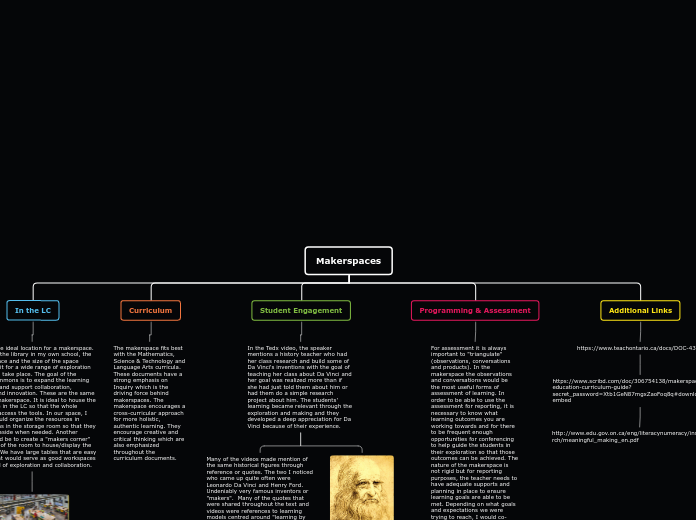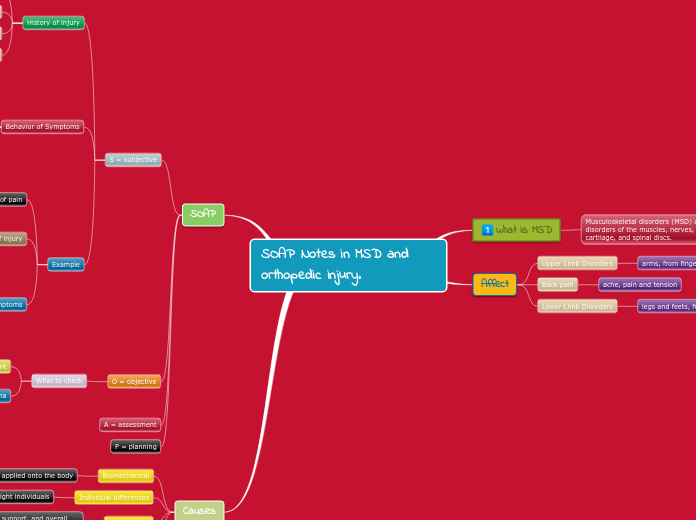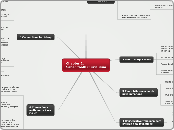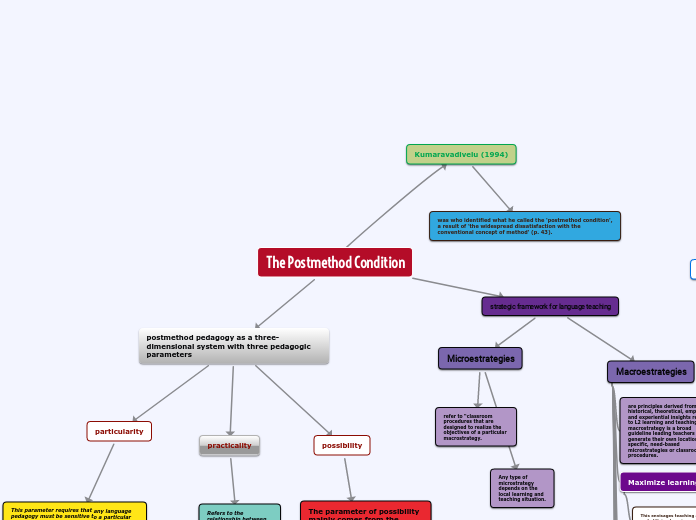Philosophy of Education
Red fill = concepts/ideas I do NOT want in my classroom
Yellow fill = concepts/ideas I am unsure about using in classroom
Green Fill = concepts/ideas I will be using in my classroom
Purple Fill = Master Teacher (represents Christ-like attributes)
Blue flag = Doctrine
Yellow Flag = Principle
Tool =
Philosophical Perspective
Philosophy and Education
Existentialism
Teacher student relationship is personal.
Education liberates individual from chaotic world.
Focus on needs of individual (cognitively and affectively)
Language is important
Summerhill 'Academy'
Moral democracy
Application
Teacher is not an authoritarian; more like a cheerleader
Teacher encourages, plans, questions, and offers suggestions
Reality is based on my own experience
Success judged by consequences of actions
Philosophy needed to be applied to solving human problems
Neo-Theomism
Study and faith
How does spiritualaity relate to the rest of the world
Intellectual
Oak Tree Analogy
Very faith based and spiritual
God is a worthy source of knowledge
Learning by study and also by faith
Many private religious schools
Religious and character education
fusion of Greek rationality and Christian Theology
Realism
Teaching moral and intellectual values
Class Notes
How do children learn within their first few years of life and try to incorporate that into further learning
We come to world with an empty head/blank slate
Focusing on more than math and science; humanities as well
Applying what they learn
Learn with your senses
Behavioral Objectives
Standards, Achievement
Scientific Method
Syllogism
Knowledge is obtainable through research
I can obtain knowledge through my senses.
Idealism
Transmitting truths and values
Class comparisons/Qualities of Idealistic Teacher
"Cogito ergo sum"
"I think, therefore, I am"
Role of the Teacher
Teach things that are going to make them think
We hopefully will instill a desire to learn for themselves and to gain wisdom
We are a guide to the students
Study things to make them think
Responsibility to gain a deeper understand of concepts
Learn from the past
Teach them how to learn for themselves
Wisdom and values are gained through personal reflection and growth
Aims to develop the spiritual, emotional, and moral being of students. Help them learn for themselves
desire for deeper understanding
It will be hard, and there will be disappointments, but every person needs to keeping moving forward
Focused on helping the student gaining a deeper insight than he/she already has
Continual progression
Education is always the development within
Focus on the Three "R's"
Arithmetic
Writing
Reading
Education is transformation. Ideas can change lives. The more we know, the better we are.
Values are absolute and eternal
considered oldest philosophy of Western culture; dates back to Greece
4 Branches of Philosophy
Logic
Students will think differently and they will come to solutions differently than their peers
Helps students see truth
deductive and intuitive reasoning
Intuitive: taking specific examples and considering the general principles
Deductive: involves examining a general case, deducing a general set of rules or principles
critical investigation and analysis
branch of study that concerns questions about reference, prediction, identity, & truth
Axiology: What is the nature of values?
As a teacher, it determines values/discipline/grading assignments
Aesthetics: nature of beauty; what is it worth?
Ethics: study of what is "good or bad" in human behavior, thoughts and feelings
What does it mean to be good or bad
justified and means
Value and studying the nature of value
Epistemology: What is the nature of knowledge?
As a teacher, determines HOW I teach
the better we understand it, the better we can teach our students
Helps answers children's "why" questions
How we know what we know?
Is there a right answer?
Where do answers come from?
Theory of knowledge
Metaphysics: What is the nature of reality?
As a teacher, determines WHAT I teach.
Determines what's worth teaching and how it will be taught
What's real and not real
Philosophy: love of wisdom
Philosophy compels teachers to lead students in a direction that is meaningful and of most worth
Education calls teachers "to lead from ignorance"
Search for truth
Education is intertwined with a passion to understand
Pragmatism
Role of the teacher
Nature of the learner
Educational Groups
Axiology
Epistemology
Knowledge should be used to act on things
Metaphysics
Make our ideas clear
Horace Mann
Common School
Resistance
Government involvement in education was a repudiation of liberalism and parental rights
Local Control - funding comparison between wealthy neighborhood schools vs poor community schools
Taxes - people don't want to pay for the education
Allows individuals from any background to become what they want to be - American Dream
School was like a factory; placed on an assembly line and just forced through
School can sometimes feel like a job, not an opportunity to learn
Students were educated, then left. There was hardly any application.
Forms civilization
School is essential
Dewey
"I believe that only through the continual and sympathetic observation of childhood's
interests can the adult enter into the child's life and see what it is ready for, and upon
what material it could work most readily and fruitfully."
Present education needs to be part of community life
Home
is the form of social life that is nurtured and where those connections are made
Present life as life
Education is a process of living, not a preparation for future living
Beecher
Plato
Comenius
Advocate for early education
Created the first textbook with pictures
came up with one of the first books for teaching
wanted to reform education to be more advanced
Fixed/Growth Mindset
As an educator, provide a classroom that encourages curiosity, not one that diminishes it.
How has school got in the way of education? (things I don't want to do)
They were concerned with the statistics of learning instead of measuring growth.
Everyone is taught the same way at the same time
Teachers picked favorites
No forgiveness
Defining your intelligence through homework
If you don't earn an "A", worse than average
We were taught how to take tests
we were taught how to memorize
There's only 1 correct answer
Resulted in being afraid to ask questions
Characteristics of an outstanding teacher
Genuine
Forgiving
Loving
Patient
ED Philosophies
Post-modernism
examine all institutions
examine myths
Essentialism
Authoritarian
teacher as demonstrator
Curriculum and Instruction
Learning by objectives
Master of facts
Socratic dialogue
Lecture
Back to basics
Develop cultural literacy
Train intellect
Classroom environment
Teacher controls classroom with a system of rewards and punishments
Teacher is very strict
Teacher is center of classroom
Strict and disciplined
Arts
history
science
math
Perennialism
Objective tests/Standardized tests
How well they can transfer knowledge into skills
Dante and Charles Dickens
Teach students reasoning skills and critical thinking
Organized and discipline
To seek enduring truths which are constant
great ideas of Western Civilization
History, English, Philosophy
transmit eternal truths and values
Promote moral development
Cultivate the intellect
believe education and knowledge transcends time
Social Reconstructionism
Subtopic
focused on students experience in life and tries to solve real world problems
Prepare change agents
critique cultural and social institutions
Behaviorism
B.F. Skinner
"Repetition of a meaningful connection results in learning"
Role of Teacher
Purpose of School
Progressivism
Nature of Learner
Group Oriented
Provides an unselfish atmosphere to learn
Researcher
Educational Giants
John Dewey
"Education is a process of living, not a preparation for the future."
"school should improve the way of life for our citizens through experiencing freedom and and democracy in schools"
Assessment
Collaborative
Community centered
Democratic
Emphasize citizenship
Formative evaluation
Classroom Environment
Students should experiment
Encourage students to ask questions
Pedagogy
"Books are tools, not authority"
Be active, not passive
Curriculum
Integrative Units
Problem solving
Project method
cooperative learning
Experience centered
Should come from student interests and questions
Role of teacher
Research director
Collaborative partner
Director of learning
Facillitator
Help the students "learn by doing"
Purpose of school
Promote democratic society
Students learn through problem solving and making connections to their lives outside of school
Should be focused on the student, not the content or teacher
Classroom Culture
Get to know students and their families
Have many different forms of communication between teachers and parents
Example from class: Potluck before school starts
Do a family history/genealogy activity
It is important not to see color, but it is important to recognize different backgrounds and treat them accordingly.
You can't treat every student the same way. They are each different.
"Technology is stunting thought and wonder"
Encourage them to explore
Use nature as a way to promote thinking and wonder
Celestial Culture
Devoted
Self-control
Obedience
Fairness
Truth
Honesty
Trust
Faith
How to Teach
Don't take a middle class perspective on students' lives.
Lesson Planning
Activity: do an "Activate Prior Knowledge"
Teaching in small groups and then presenting in front of the class
Application: have them pick random topics and then speak on that for 10 seconds
Help them think and articulate their
Help them act on revelation
Start with them sharing with small groups, and then help them transition to speak in front of the class
Teach no limitations
If we admit that in education it is necessary to begin with the experiences which the child
already has and to use his spontaneous and social activity, then the city streets begin this
education for him in a more natural way than does the school.
Would there be time for students to meditate and ponder what they learned?
Recreate positive conditions that children should have experienced in a loving home
Think like a scholar
Recognize the humanity of my students
Freedom of the Mind
Use connections
8 Essential Questions
Who am I and what motivates me?
Plan of Salvation
Love
Prepare a lesson with each child in mind (individual worth)
Have a compliment wall where classmates write kind things about each other throughout the week
Should be service oriented
Find activities/opportunities to do service projects around the school. (Picking up trash around the playground, helping in the lunch room)
Get together with another class and do pen-pal sort of activities. Ministering in a way they don't know it.
Continually Progressing: For continual education and personal growth
For my future students
What is the role of learning and teaching in the home?
The Family: A Proclamation to the World
Parents should lead their family in wholesome, recreational activities.
Send newsletters home for the kids to do activities with their parents as much as possible. I want to encourage more family time as much as possible.
Children thrive best with both a mother and a father present in the home.
Encourage parents to really participate in Parent-Teacher conference.
Parents are responsible to teach their children what is right and wrong.
Do an activity where we share what everyone's family rules are.
Parents are one of the main sources of learning for a child
Parents should encourage learning and cultivate an environment for a desire of learning to grow
What is the role of school in society?
Endow the educator with the means to properly learn
They have a moral duty
Massachusetts Bay Colony article:
Moses 7: 18; Zion "they were of one heart and one mind"
"It takes a village to raise a child"
As people come together for one righteous cause, it bless the lives of each member.
Get involved with the community to influence good change for everyone, especially the children.
Everyone working together creates better results.
Work with other schools and brainstorm with those teachers and administrators.
As a teacher, I would like to participate in parent/teacher organizations to improve school for the students.
We are raising the next generation to thrive in society
Upon what foundation are U.S. public schools built?
We need to recognize the nature of learners at all ages
Demanding more and more out of younger children; this is not allowing them to enjoy the things they should at their age
Focusing on Essentialism - current public education
Every Student Succeeds Act: more focused on the needs of each individual student's learning
Each child learns differently in education and throughout life. Just as each person feels the Spirit differently.
3 Nephi 11:15; one by one
Have each child decorate a name tag full of their favorite things. Then have the members of their group say what they like about each students name tag.
Set aside time to get to know each individual student. Let them know I care not only about their education, but their likes and dislikes outside of school.
Every child has individual worth, and that can be conveyed as we recognize the different ways each student learns.
Do a variety of learning ranging from hands-on activities to doing lessons outside. Get to know each student and how they best learn.
No Child Left Behind Act
Common Core
How do I learn?
Hands on learning
Learn by the Spirit
Need to have humility - this encourages the Spirit to be there
Teachers should not always be in control
Meditation for the students
Allow small moments throughout the day for the Spirit to help them understand what is being taught.
The Spirit is the greatest teacher.
Since I will be teaching public school, I can't pray in the classroom. But I can still do things that will encourage the Spirit to be there and hopefully provide the Spirit to teach the kids.
What is worth teaching?
Teach the "why" behind the learning
What eternal truths and values do you believe should be shared with all students? - Teaching Philosophy
Charity
They can have second chances
Taught learning can turn to wisdom
The best students can learn anything anywhere
They should be taught that they are children of God
They are loved!
They are worth it and loved
Examples: a clam, coal/diamond, 5 dollar bill crushed activity, etc.
Teach them that the value of things doesn't always come from what they first see.
Means their potential is unlimited
Do an activity where classmates write down the strengths they see in each other
Failing can be turned into a positive thing.
Academics & Life Lessons
Become a well-educated member of society
How to learn effectively
Act on what is being taught
Teach them how to understand - I facilitate/guide their learning. I don't tell them just to listen.
If I do this, then they will hopefully know how to understand any truth that comes their way in life
Understanding is the spiritual outcome
What is my work as learner and teacher?
Learner
D&C 58:27; "Be anxiously engaged in a good causes"
Ask questions
Give students an opportunity to ask questions with one another and then also to me.
Every month do an activity that will help them figure out what they like and then spend some time throughout the month helping them learn more about that subject.
James 1:5; "Ask and ye shall receive"
Study
Never turn your own thinking/thoughts over to another individual
Students should understand that in addition to continually learning, they will also need to know how to think for themselves on the spot
Have them teach me and their classmates what they have been learning.
Have them build something will Legos.
Give kids topics, and have them do an activity that has to do with that topic. Maybe they can write a story, draw a picture.
They need to know that they will be learning their whole lives, so they should understand how they learn best and to actively trying to learn new things.
Don't come out of 12 years of education only to be a bystander
Maintain humility while learning
accept their "teacher" as their guide in the learning journey
to become educated & seek learning continually
Educator
Understand doctrine/principles of Jesus Christ = good teacher
"Come Follow Me"
“Be a breeding ground for brilliance, optimism, and new thinking”
Promote honest learning
Problem solver
Encouraging
leader
molder
Trainer
How do I view and magnify those I teach?
Repentance
Help them understand consequences (both good/bad) - 2 Nephi 9:48
Use a "Choose Your Story" book/activity to show how choices can affect us. But then go on to say that we can always try again in life.
Keep moving forward
Application: draw a bunch of lines intertwining (looks like a mess), and then tell them to create a picture from that.
Children learn by their mistakes and as a teacher I need to remember/recognize that
Point out that lessons can be learned after we fail.
Unlimited potential
Children of God
Education is an eternal quest
Have a responsibility to learn continually
